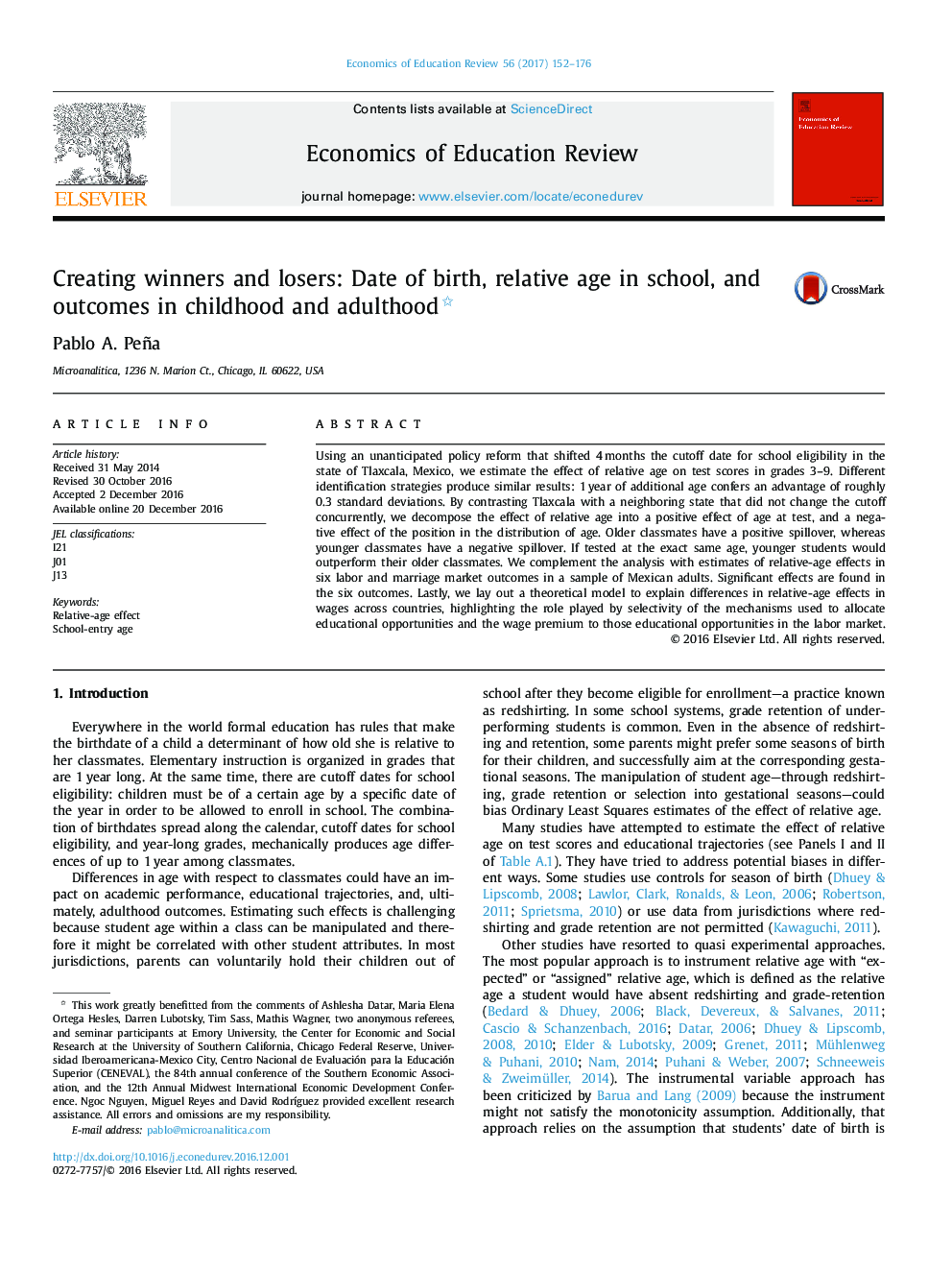| Article ID | Journal | Published Year | Pages | File Type |
|---|---|---|---|---|
| 4938319 | Economics of Education Review | 2017 | 25 Pages |
â¢Older students have a sizeable advantage in test scores over their younger classmates.â¢If students were tested at the exact same age, younger students would outperform their older classmates.â¢Older students have a positive spillover into their classmates' test scores, while younger classmates have a negative spillover.â¢Adults who were probably older in their class attain more education, have higher earnings, and marry more educated spouses.â¢In theory, differences in relative-age effects in wages across countries can be explained by differences in the extent of selectivity in the allocation of educational opportunities and by differences in labor market conditions.
Using an unanticipated policy reform that shifted 4Â months the cutoff date for school eligibility in the state of Tlaxcala, Mexico, we estimate the effect of relative age on test scores in grades 3-9. Different identification strategies produce similar results: 1Â year of additional age confers an advantage of roughly 0.3 standard deviations. By contrasting Tlaxcala with a neighboring state that did not change the cutoff concurrently, we decompose the effect of relative age into a positive effect of age at test, and a negative effect of the position in the distribution of age. Older classmates have a positive spillover, whereas younger classmates have a negative spillover. If tested at the exact same age, younger students would outperform their older classmates. We complement the analysis with estimates of relative-age effects in six labor and marriage market outcomes in a sample of Mexican adults. Significant effects are found in the six outcomes. Lastly, we lay out a theoretical model to explain differences in relative-age effects in wages across countries, highlighting the role played by selectivity of the mechanisms used to allocate educational opportunities and the wage premium to those educational opportunities in the labor market.
